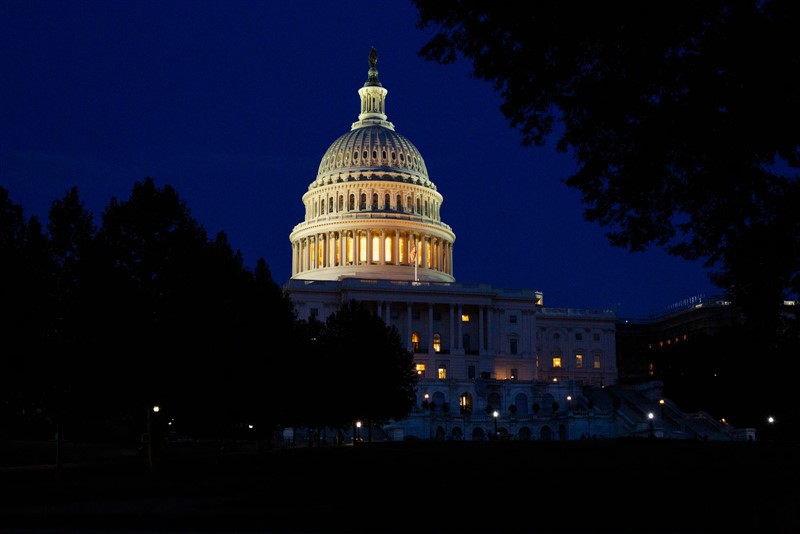This article will give you all of the information you need on the phrase strike the last word, including its definition, usage, origins, and more!
-
Kevin
-
 February 17, 2021
February 17, 2021
-
 Common Questions
Common Questions
 February 17, 2021
February 17, 2021
 Common Questions
Common Questions
This article will give you all of the information you need on the phrase strike the last word, including its definition, usage, origins, and more!
Strike the last word is one of many phrases one may hear in Congress. Congressional meetings have their own set of vernacular that is difficult to decipher. According to Congressional Institute, the phrase strike the last word is used in a pro forma amendment. A pro forma amendment is a motion where a Member gets five minutes to speak on an amendment which is currently under debate. The Member will gain recognition from the Chair by moving to strike the last word. A pro forma amendment does not require a vote, change the amendment under debate, and is seen as withdrawn when the five minutes are up. This is one of many phrases used when discussing amendments. According to Hobnob Blog, this can also be said as “strike the requisite number of words.” This phrase can be used in both the Senate and the House of Representatives by lawmakers. Both of these branches of Congress meet in the Capitol.
Tennessean states that according to “Speaking on the House Floor; Gaining Time and Parliamentary Phraseology,” written by the Congressional Research Service, strike the last word and pro forma amendments are used so members of Congress can have more time to debate an amendment. Normally, only ten minutes of debate time are allotted to discuss an amendment. One Member presents the amendment for five minutes, and another member speaks in opposition for five minutes. Another member can then use the phrase “I move to strike the last word” to allow said member to speak for an additional five minutes, extending the ten minute rule. In short, according to NBC News, when a Member of Congress says “I move to strike the last word,” it means they want to speak on the issue at hand.
Gov Info states that initially, the pro forma amendments were used to make a superficial change in the language of the amendment, but the underlying purpose is to gain time for the debate. If the Chair hesitates to initiate ruling a pro forma amendment as out of order, the Committee of the Whole has the power to end the debate at any time.
For example, when the House Judiciary Committee debated the two proposed articles of impeachment against President Donald Trump, the phrase was used over and over again to allow different house members to give their opinions on the amendments to impeach the New York native President. This phrase was also used when Republican Representative Matt Gaetz moved to remove former Vice President Joe Biden as the target of the Ukraine investigation, and GOP Andy Biggs asked the articles to state that the aid to Ukraine was released. Both of these were rejected.

Congress Members may use many phrases that the average American does not know the meaning of, making it difficult to understand many congressional hearings that one may watch on news sources like C-Span. Congressional Institute lists a glossary of congressional terms. There are multiple types of amendments aside from pro forma:
The word “strike,” according to Etymonline, comes from the Old English word “strican.” This meant to pass over, move, or proceed. This comes from the Proto-Germanic “strikan.” This word is related to the words “streak” and “stroke” and was potentially influenced by the Old Norse “striuka.”
The word strike in the context of the phrase “I move to strike the last word,” means “I move to be the one to say the last word.” Merriam-Webster states a plethora of meanings for the word strike. In Congress, the phrase is not used literally – no one is coming into the Senate with a hammer – but rather figuratively. Members of Congress move to figuratively “lay down” the last word in the debate.
“Pro forma,” the alternate title of moving to strike the last word, is a Latin phrase that means “for the sake of” or “as a matter of form,” according to Investopedia.
Overall, the phrase “strike the last word” is used by members of Congress when debating an amendment, and is also called a pro forma amendment. Normally, amendments are only allotted ten minutes of debate: five minutes for it to be presented, and five for it to be argued. When a Member of Congress follows the negative position by saying “I move to strike the last word,” they are then allotted an additional five minutes to speak on the amendment. Multiple Members of Congress can all move to strike the last word in succession.